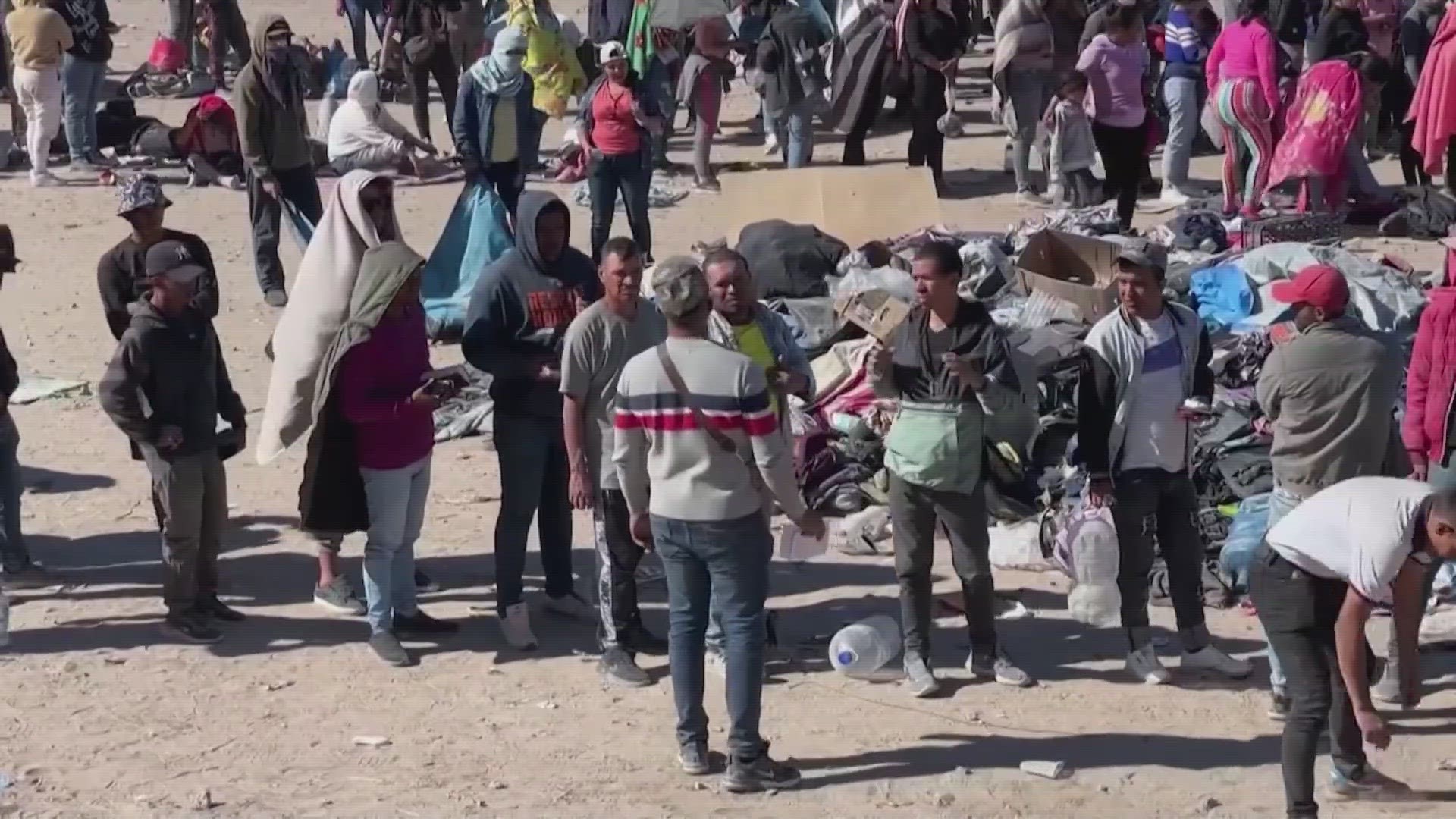SACRAMENTO, Calif. — After more than three years, Title 42 is coming to an end. The order authorized the U.S. Customs and Border Protection to immediately remove migrants, including people seeking asylum, seeking entry into the U.S. at the land borders.
The Centers for Disease Control and Prevention issued the order under the Trump administration in March 2020 in response to the COVID-19 pandemic.
According to data from the U.S. Customs and Border Protection, U.S. officials turned away migrants more than 2.8 million times under Title 42 since the policy began. The policy is now set to end at 11:59 p.m. ET on Thursday, May 11.
That's because the Biden administration announced an end to the COVID-19 public health emergency, consequently ending the Title 42 border restrictions as well.
The lifting of the Title 42 order does not mean the border is open. According to the U.S. Homeland Security, when the Title 42 order lifts, the U.S. will return to using Title 8 immigration authorities "to expeditiously process and remove individuals who arrive at the U.S. border unlawfully." The law outlines processes for deportation and carries strict penalties, including five and 10-year bans on reentry for people deported.
"Starting at midnight, people who arrive at our southern border will be subject to our immigration enforcement authorities under Title Eight of the United States Code," said Homeland Security Secretary Alejandro Mayorkas at a White House briefing Thursday afternoon. "Here is what that means. If anyone arrives at our southern border after midnight tonight, they will be presumed ineligible for asylum and subject to steeper consequences for unlawful entry, including a minimum five-year ban on reentry and potential criminal prosecution."
GET MORE RACE & CULTURE FROM ABC10:
►Explore the Race & Culture home page
►Watch Race & Culture videos on YouTube
►Subscribe to the Race and Culture newsletter
With Title 42 set to end, the U.S. expects migration levels to increase. Organizations across the country, including those in the Greater Sacramento region, are preparing to help vulnerable migrants.
The International Rescue Committee (IRC) is a nonprofit helping people affected by humanitarian crises. In 2022, the IRC's Resettlement, Asylum and Integration (RAI) teams served 308,174 clients. That includes 177,860 in the U.S.
With offices in Sacramento, the IRC is preparing to help people rebuild their lives, if needed, in the region.
"We are scaling up our programs on both sides of the border," said IRC executive director, Tara Rangarajan. "There is no public health rationale for denying people their legal right to claim asylum at the U.S. border. The disastrous impact of policies, like Title 42, has left tens of thousands of people waiting in Northern Mexico for a chance to seek asylum in the U.S."
The Sacramento Food Bank and Family Services (SFBFS) is preparing to help migrants, too. Outside of food assistance, SFBFS also offers low-cost immigration legal services "to help people navigate the complexities of obtaining lawful status in the U.S." SFBFS provided 533 immigrants with legal service support in 2021.
Through the immigration legal services program, SFBFS provides "access to a staff attorney and Department of Justice accredited representatives. The services provided range from consultations to full representation in affirmative cases before the U.S. Citizenship and Immigration Services (USCIS), as well as defensive representation before the Executive Office for Immigration Review (EOIR)."
SFBFS also offers refugee resettlement services. SFBFS began the service in 2015 through a collaboration with the United States Conference of Catholic Bishops (USCCB), Migration and Refugee Services (MRS) Office. In the first three years of the program, SFBFS helped 506 people in Sacramento County.
"We won't really know the impacts of Title 42 for some time, but we are expected to see an increase in our services," said Kevin Buffalino, Director of Communications with the Sacramento Food Bank and Family Services. "We are prepared and ready to meet the increase in demand. It's something that we've already seen over the past couple of years with the pandemic and inflation. Our community members are certainly hurting."
Organizations like SFBFS and IRC are encouraging consistent funding and volunteers to help all communities in vulnerable situations.
ABC10 reached out to several other community organizations. Most said they're not sure when, if at all, migrants will be in our region, but they're prepared to help anyone who may need it the most.
We want to hear from you!
The Race and Culture team's mission is to serve our diverse communities through authentic representation, community engagement and equitable reporting.
Accomplishing our goals of inclusive reporting requires hearing from you. Is there a person or place that you want us to highlight? Email us at raceandculture@abc10.com or fill out the form below.

